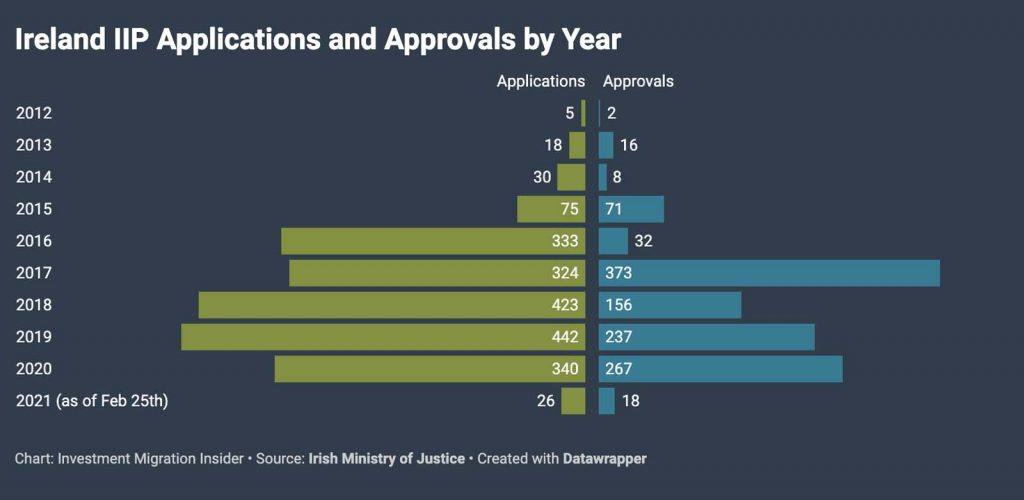Insight
When is the best time to emigrate?


People migrate for many reasons. Whatever the reasons, it takes time to weigh up the pros and cons before coming to a final decision. And while delaying such life-changing decisions is understandable, time is an important factor when it comes to immigration. The later you make the move, the more uncertainty you may face. One of the key factors around this uncertainty is policy and requirement changes that may mean you and your family are unable to qualify for your chosen immigration programme.
Are you thinking of adopting a wait-and-see approach? Here are some reasons why you should resist delaying your immigration decision.
Immigration policies can change
Immigration policies wherever you are looking to move to are never static. As the number of people who immigrate to a country increases, it is not uncommon to see governments tighten policies or introduce new regulations to prioritise the interests of residents. This might include changing the number of minimum days stay in the destination country, tightening investment project requirements, and/or raising the sum of required assets or investment amount, to name a few.
Currently, there is heated debate around the Citizenship by Investment (CBI) and Residency by Investment (RBI) schemes in the EU.
In October, the European Parliamentary Research Service (EPRS), an in-house research department that provides analysis for the EU to make necessary amendments, published a 159-page study on investment migration programmes in the EU. The objective of the study is to assess the risks of certain aspects such as:
1. Risk of violating the principle of sincere cooperation
2. Risk of the commodification of EU citizenship and residence
3. Risk of violation of the principles of fairness and discrimination
4. Risk of weak vetting and due diligence
5. Lack of sufficient safeguards for macro-economic governance
With the above risks assessed in the report, the ERPS identified five possible policy directions to mitigate the risks and protect local governance, social and economic stability, which include phasing out CBI/RBI schemes, taxing CBI/RBI schemes, strengthening the regulations, mandating minimal physical presence requirements and regulating access to the EU for third countries.
We welcome regulations on conditions, guarantees and safeguards of the CBI/RBI schemes for better transparency and protection. However, for potential immigrants, we suggest planning early as policies can change at any time. For investors thinking of immigrating to the EU, it’s best to consult advisors to ensure they choose a suitable scheme with the appropriate risk level.
There are changes to immigration programmes happening in other parts of the world too. For example, the investment requirement in Australia increased from AUD1.25 million to AUD2.5 million this year, and the type of investment changed from designated investments – Australian State or Territory bond, to complying significant investments – funds in specified proportions.
This is just one example that nevertheless shows how quickly things can change with regard to immigration, potentially transforming a move from feasible to impossible.


Early planning safeguards children’s futures
For most families looking to immigrate, the main reason is to secure their children’s futures. If a family is granted residence status at an early stage, children are able to begin their studies sooner, allowing them more time to adjust to the new culture and environment. In the longer term, children are also able to establish academic and career connections and to seize a greater number of opportunities.
In recent years, Ireland has become one of the top immigration destinations. Ireland is the only English-speaking country remaining in the EU following Brexit and it has a leading education system – Ireland’s primary and secondary education ranked seventh globally in 2020. Universities such as Trinity College Dublin and University College Dublin offer high quality education that equips students with the knowledge and skills to step into some of the top global companies. And Ireland’s job market is thriving, offering plenty of opportunities upon graduation.
In Ireland, the sooner a child obtains residence status, the sooner they can become Irish citizens and enjoy associated rights. Children will be eligible for an Irish passport when they are aged 18 or above and have been resident in the state for at least five years, meaning they can study at top universities in Ireland, EU member states and even the UK thanks to the Common Travel Area (CTA) arrangement between Ireland and the UK. If they opt for a British university, they can qualify as local students and pay the ‘home rate’ instead of overseas fees, which can be three times as much.
From the perspective of parents, the current Immigrant Investor Programme (IIP) is flexible in terms of its residency requirements as investors only need to spend one day per calendar year in Ireland to maintain this immigration status, allowing the achievement of residency without necessarily moving to Ireland. It is worth noting that Irish passports can be applied for individually, meaning children remain eligible for an Irish passport even if parents have been resident in Ireland for less than five years.
Learn more about Ireland’s education system and job market development in our earlier blogs.
Seize investment opportunities ahead of time
It’s not only important to decide and begin on a suitable immigration programme at the right time, but seizing good quality investment opportunities is also key. To learn more about choosing reliable companies and their associated investment projects, read our previous article, How to assess the risks of immigration investor programmes.
Bartra’s latest investment project, Cookstown Tallaght, a nursing home project built to meet the highest Irish Government (HIQA) and EU standards, qualifies for government-supported revenue models and the IIP, offering a great opportunity for families who are looking for immigration with an investment return. Since the project launched in mid-October, investors have already taken up more than half of the available slots; fewer than 10 remain available. Bartra is aiming for a full fundraise by the end of the year. To find out more, contact our consultants.


▲ Bartra’s latest nursing home project, Cookstown Tallaght
Summary
Ireland is an increasingly popular immigration destination thanks to its favourable IIP schemes. Data from the Irish Ministry of Justice shows that the number of IIP applications has been increasing rapidly since 2012, with applicants for the IIP hailing from various countries, demonstrating Ireland’s international appeal. However, as noted above, programmes can change at any time and good investments are snapped up fast, so why not act now to build a promising future for you and your children?


Contact us to learn more about our investment projects and the IIP programme.



